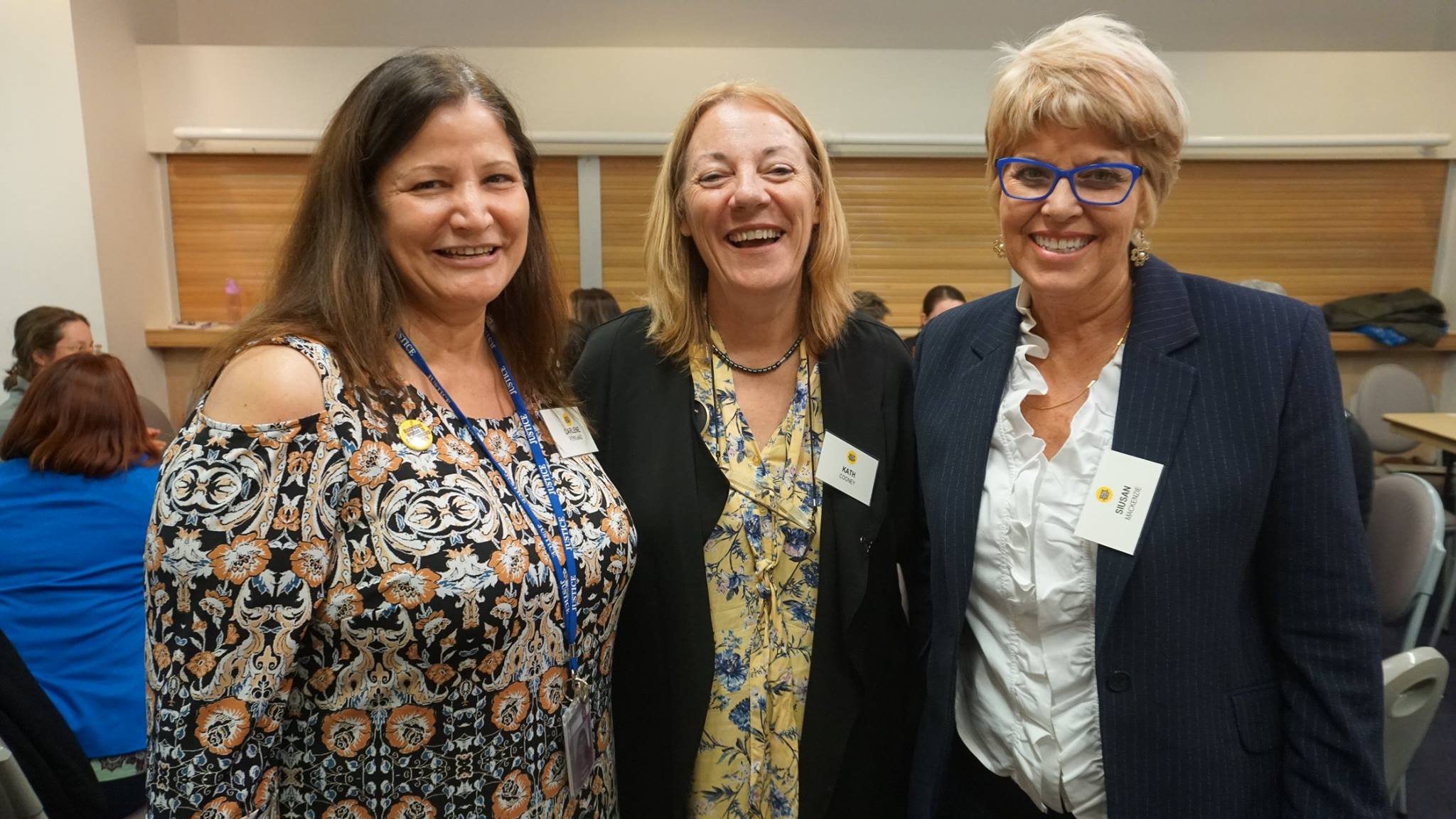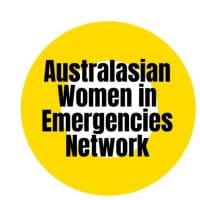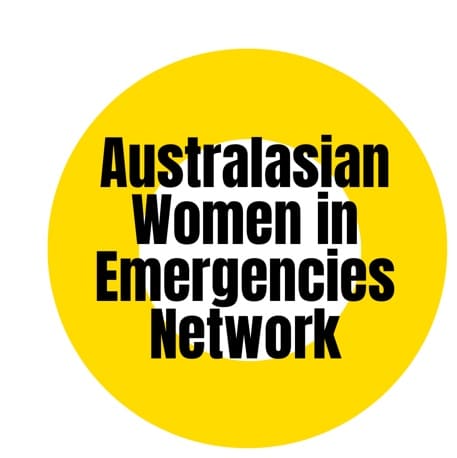The AWE Mentoring Program
Find out more and submit your Expression of Interest to be a Mentor or Mentee below.
The AWE Mentoring Program assists members to establish effective and positive mentoring relationships. Through these relationships we strengthen our network of members; share our collective knowledge; enhance our problem solving and goal setting skills; broaden our horizons and increase our connections across the sector. This is one way in which AWE contributes to stronger emergency management and disaster resilience sector.
All AWE members are eligible to participate in the AWE Mentoring Program as either Mentors or Mentees. AWE membership is a requirement to participate in the AWE Mentoring Program as a Mentee. Mentors are not required to be members. Establishing or participating in the AWE Mentoring Program is in a voluntary personal capacity.
The AWE Mentoring Program does not negate or replace any rules, regulations, policies or procedures that members’ own agencies have in place to support the establishment of agency coaching or mentoring relationships or agreements.
What is mentoring?
Mentoring is a relationship where a Mentor supports the personal and professional development of a Mentee. The focus of mentoring is to support and guide a Mentee to achieve their learning goals as agreed and recorded in a development plan. A mentoring relationship intends to work towards goals set up between the Mentor and Mentee.
An effective and positive mentoring relationship will involve and demonstrate the following attributes:
- Openness
- Willingness to learn and share
- Trust
- Supportiveness
- Constructive feedback
- Respect
- Commitment to outcomes and the process
- Respectful communication
Mentees are likely to experience a boost in knowledge, confidence, motivation, skills, ideas and networks. Mentors are likely to also experience benefits through sharing knowledge, discussing challenges, improving personal management and communication practices, and ‘giving back’ to the sector. Mentors often learn things from their Mentees and about themselves during the process.

The following principles are specific to the AWE Mentoring Program:
- Mentoring is intended to focus on the individual professional and personal development of the Mentee, for a time period agreed between the Mentor and Mentee.
- Mentors agree to provide advice and guidance to support the professional and personal development of Mentees.
- Mentees agree to lead and drive the mentoring relationship by organising meetings, keeping records, ensuring that they undertake any agreed actions between meetings and taking on board the advice and guidance provided by the Mentor.
- Mentoring interactions may involve both general professional discussions and individual and direct feedback.
- The level of detail in recording mentoring sessions (including agreed actions and outputs) will be as agreed between the Mentor and Mentee.
- AWE members are able to find their Mentors from within the AWE membership or from elsewhere. AWE members may seek access to an AWE (self-nominated) Mentor through a centrally managed Mentor Register.
- The AWE Network Committee will maintain a Register of AWE Mentors (self-nominated) who have made themselves available for mentoring. This Register will include a photograph of each Mentor and information about their roles, careers and skill sets. This Register will be updated regularly.
- The AWE Mentoring Coordinator will endeavour to identify suitable Mentors for Mentees when requested to do so. This may not always be possible due to the number of Mentors who are available or the suitability of their skill sets. AWE members who request a Mentor be identified for them through the AWE Mentoring Program will be notified if no suitable Mentors are available, and other options will be explored.
- Any AWE Mentoring Agreement entered into as part of the AWE Mentoring Program will be lodged with the AWE Executive Committee.

If the Mentor and Mentee are known to one another, it may be easy to reach an agreement about establishing a mentoring relationship. If the Mentor and Mentee are unknown to one another, it may be important to meet in person or by phone before deciding to proceed. The first meeting between the Mentor and Mentee is a chance to get to know each other. The Mentor and Mentee must be well matched, so both are encouraged to consider this match carefully. The following questions could be useful to discuss at this point in the process:
- What are our expectations and hopes for the mentoring relationship?
- What skills, experience and energy do we each bring to the relationship?
- How much time and availability do we each have for this relationship?
- What are our preferred communication methods for meetings (face to face, phone, video)?
- What experience do we have of mentoring?
- How long do we envisage the mentoring relationship lasting?
If at this stage either the Mentor or Mentee feels that the relationship may not be beneficial or effective, this is the time to mention this and not proceed with the arrangement. It may take more than one attempt to find a suitable Mentor/Mentee combination.
When the Mentor and Mentee agree to form a mentoring relationship, the AWE Mentoring Agreement form is to be completed by both Mentor and Mentee. Completing this form will enable both Mentor and Mentee to establish what they wish to get out of the relationship and design their personalised mentoring program around their objectives, resources, time availabilities and circumstances. It allows both to agree to participate for a specified amount of time. It can also be used to help both be clear on what is negotiable and non-negotiable in the arrangement.
The mentoring experience is the responsibility of both the Mentor and the Mentee. The experience can be mutually beneficial and satisfying, particularly if both the Mentor and the Mentee are prepared and committed to their participation, as outlined in their AWE Mentoring Agreement. Not all Mentors and Mentees will be geographically located near each other. This means that methods of engaging with one another may vary.
Suggestions for communication methods and meetings are:
- Informal meetings e.g. coffee catch-ups
- Formal meetings
- Phone calls
- Emails
- Video catch-ups (Skype, Zoom, Face-time)
- Networking events (including before or after an event)Mid-relationship reflection
Near the half way mark of the mentoring relationship, Mentors and Mentees are encouraged to take some time to reflect on their aims and achievements so far. This allows both Mentors and Mentees to make adjustments or refocus as necessary.
As the mentoring relationship nears the end of the agreed time frame, the Mentor and Mentee can discuss whether they wish to extend their mentoring relationship or to conclude it. Successful mentoring relationships do conclude. The Mentor and Mentee may discuss the nature of any ongoing relationship (eg as work colleagues; having less frequent but regular catch-ups; working together on a ‘project’ or topic, or connecting in the future on as ‘as-needs’ basis).
To conclude the mentoring relationship the Mentor and Mentee need to complete and submit the AWE Mentoring Closure Agreement. For the AWE Network, encouraging each mentoring relationship to conclude will also ‘free up’ Mentors to take on new Mentees. Previous Mentees may also then proceed to become Mentors themselves.
If they decide to extend their mentoring relationship, the Mentee should advise the AWE Mentoring Coordinator. Completing this form will allow the Mentor and Mentee to discuss and formalise the successes and benefits of the relationship. Mentor and Mentee can also acknowledge and express thanks for the contribution each has made to this relationship. This form will also provide the AWE Network Committee with valuable information to enable them to review and revise the AWE Mentoring Program from time to time.
What is mentoring?
Mentoring is a long-term relationship where an experienced Mentor supports the personal and professional development of a Mentee. The focus of mentoring is to support and guide a Mentee to achieve their goals as specified in an agreed development plan.
Who will decide who I am matched with?
Ultimately you and your proposed Mentor/Mentee decide whether you will enter into a mentoring relationship. You are encouraged to approach someone on the website or via your connections to seek their interest in commencing a mentoring relationship. A Mentor/Mentee may approach you directly, based on reviewing this profile on the website. Additionally, the AWE Mentoring Coordinator may ‘match’ you based on strengths, preferences and development needs.
To express interest in the program, you will need to complete the AWE Mentoring Expression of Interest form. As part of the process of expressing interest, you will be asked to upload a portrait photograph, a short bio, and your preferred contact email address. This information will be loaded onto the register, on the AWE website, and will be visible publicly.
Is there a vetting process, for either Mentors or Mentees?
There is no vetting process for either Mentors or Mentees. You are responsible for determining the suitability of any potential Mentor/Mentee. You are also able to seek confidential advice from anyone to help you decide whether to accept or decline any request to enter a mentoring relationship.
How do I manage the mentoring relationship?
The AWE website guides managing the mentoring relationship. A preliminary meeting between both Mentor and Mentee will help establish learning and development objectives. You are asked to record these on the AWE Mentoring Agreement form, which is then submitted to the AWE Mentoring Coordinator via the AWE website. Both Mentor and Mentee are encouraged to retain a copy of this AWE Mentoring Agreement, for future reference.
Who does the paperwork for the AWE Mentoring program?
It is the responsibility of the Mentee to submit all required documentation relating to the AWE Mentoring Program. It is also the responsibility of the Mentee to ‘drive’ the relationship. Mentors and Mentees are encouraged to set a determined period for the AWE Mentoring Agreement. For example, a twelve-month agreement allows participants to get to know each other, meet some challenges, reflect on progress, and allow for an extension of the relationship if it is of benefit to both Mentor and Mentee. In contrast, some Mentees may wish to have a shorter arrangement that suits their needs for a particular time period.
How much time should I allow for mentoring meetings?
Mentoring meetings can occur in many ways. Mentor and Mentee need to agree on frequency, meeting length and regularity of meeting. It is the responsibility of the Mentee to set these meetings with the Mentor. Mentoring meetings usually run for 1 – 2 hours, although this may vary.
What should the mentoring relationship focus on?
The mentoring relationship is intended to focus on the individual learning and development needs of the Mentee, as outlined in the AWE Mentoring Agreement. There is room for flexibility in the focus of the relationship, which both Mentor and Mentee will discuss and agree on.
How do I give feedback?
Mentors are encouraged to give genuine, specific, positive and constructive feedback consistent with AWE values and use appropriate feedback and communication techniques. Mentees are encouraged to be open to this feedback from their Mentor. The purpose of the relationship is for the Mentee to benefit from their own, and their Mentor’s, experience. Honest feedback is part of achieving this aim.
How do I ‘escalate’ an issue if one arises?
Disagreements or issues can arise within a mentoring relationship. These must be recognised and discussed between both Mentor and Mentee, and a mutually agreeable and respectful resolution negotiated. Referring to the formal AWE Mentoring Agreement agreed by both Mentor and Mentee can refocus the relationship and assist all involved to move forward positively. Mentor and Mentee are encouraged to use appropriate feedback and communication techniques with the intent of providing useful and constructive feedback to one another.
If issues or concerns require additional assistance to resolve, either Mentor or Mentee can seek that support by following the AWE Complaints and Grievance Policy or by contacting their AWE Chapter Lead, anyone from the AWE Executive Committee, or the AWE Mentoring Coordinator.
Should I make a record of my mentoring meetings?
It can be helpful to the mentoring relationship for the Mentee and Mentor to keep a record of conversations. This record can include key items discussed, future actions, reflections and future opportunities. This can be done in many ways including note taking during a meeting, preparing a summary at the end of a meeting, or sharing summaries via email after the meeting. Ideally, the Mentee will keep such notes and share them with the Mentor, however, Mentors often find it useful to also keep their own records.
How do I close a mentoring relationship?
A mentoring relationship may close on the date outlined in the AWE Mentoring Agreement, after the achievement of agreed Mentee goals, or at any time if there is a change of circumstances for either the Mentee or Mentor.
It is important that before a relationship is closed both Mentor and Mentee review the initially agreed outcomes of the relationship and the productivity of the relationship. Mentors and Mentees are asked to then complete the AWE Mentoring Closure Agreement. The submission of this form denotes the official closure of the mentoring relationship.
Disagreements or issues can arise within any relationship. If issues arise in any AWE mentoring relationship, it is important that these are recognised and discussed between the Mentor and Mentee and a mutually agreeable and respectful resolution negotiated. Referring to the formal AWE Mentoring Agreement signed by both Mentor and Mentee can help to refocus the relationship and can also help both to move forward in a positive manner. Mentor and Mentee are encouraged to use appropriate feedback and communication techniques with the intent of ensuring mutual respectful, useful and constructive feedback and communication. If issues or concerns require additional support, either Mentor or Mentee can seek support by following the AWE Complaints and Grievance Policy, or by contacting their AWE Chapter Lead, any member of the AWE Executive Committee, or the AWE Mentoring Coordinator for assistance.
Useful webpages:
- https://insight.kellogg.
northwestern.edu/newsletters/ how-to-be-a-better-mentor - https://www.forbes.com/sites/maryabbajay/2019/01/20/mentoring-matters-three-essential-element-of-success/?sh=58e98e7845a9
Do you know of some interesting pages or articles? Please send them to [email protected]
AWE Mentoring Round-Robin Matching
11 March 2025 | NZST: 8:30PM – 10PM | AEST: 7:30PM – 9PM | AWST: 4:30PM-6PM
Kick off the 2025 AWE Mentoring Program with our first-ever Speed Pairing Event! This dynamic and interactive session is designed to help connect mentors and mentees, giving participants the chance to engage in a series of short, focused conversations to explore potential mentorship matches.
Whether you’re a mentor looking to share your expertise or a mentee eager to gain guidance, this online event will help you find the right fit for a rewarding mentoring experience. You’ll also have the opportunity to:
- Learn more about the AWE Mentoring Program, its structure, and key milestones
- Gain insights into the emergency sector and how mentoring can support your career growth
- Meet multiple potential mentors or mentees in a fun, fast-paced environment
- Understand the next steps for building strong, meaningful mentoring relationships
Workshop 1: Goal-Setting
13 May 2025 | NZST: 8:30PM – 10PM | AEST: 7:30PM – 9PM | AWST: 4:30PM-6PM
As part of the AWE Mentoring Program, this interactive workshop will help mentees and mentors set clear, achievable goals for their mentoring journey. Guest speakers will share insights on effective goal-setting strategies, personal development, and career growth. The session will also include a Q&A, providing an opportunity to gain tailored advice and guidance. Whether you’re a mentor looking to support your mentee or a mentee seeking direction, this workshop will equip you with the tools to make the most of your mentoring experience.
Workshop 2: Public Speaking
9 July 2025 | NZST: 8:30PM – 10PM | AEST: 7:30PM – 9PM | AWST: 4:30PM-6PM
Join us for the second workshop in the AWE Mentoring Program, where we focus on public speaking and sharing your work with confidence. This interactive session provides a supportive space for mentees to practice presenting—whether it’s a project, an idea, or a lesson learned—while receiving constructive feedback from peers.
We’ll also hear from successful mentoring pairs, who will share their experiences, insights, and practical advice on building strong mentoring relationships. Through group discussions and shared learning, you’ll gain valuable communication skills, grow your professional presence, and strengthen your mentoring journey.
Whether you’re looking to refine your speaking skills, build confidence, or learn from others’ experiences, this workshop is designed to help you develop and thrive in your career.
End of 2025 AWE Mentoring Program
30 September 2025 | NZST: 8:30PM – 10PM | AEST: 7:30PM – 9PM | AWST: 4:30PM-6PM
Save the date!

